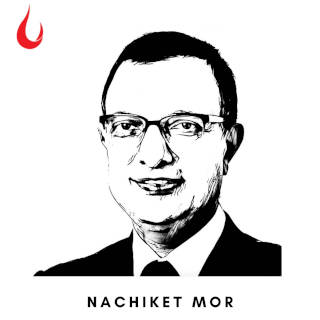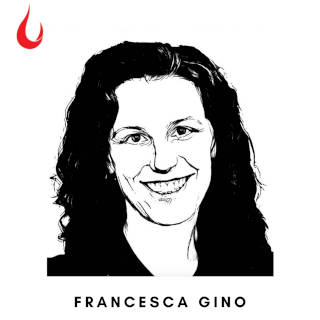[Image by Firmbee from Pixabay]
Good morning,
In his HBR classic, Managing Oneself, Peter Drucker says it’s important to be aware of how we learn. Some learn by listening, some learn by writing, some even learn by talking.
He writes, “Many first-class writers—Winston Churchill is but one example—do poorly in school. They tend to remember their schooling as pure torture. Yet few of their classmates remember it the same way. They may not have enjoyed the school very much, but the worst they suffered was boredom. The explanation is that writers do not, as a rule, learn by listening and reading. They learn by writing. Because schools do not allow them to learn this way, they get poor grades.
“Schools everywhere are organized on the assumption that there is only one right way to learn and that it is the same way for everybody. But to be forced to learn the way a school teaches is sheer hell for students who learn differently. Indeed, there are probably half a dozen different ways to learn.
“There are people, like Churchill, who learn by writing. Some people learn by taking copious notes. Beethoven, for example, left behind an enormous number of sketchbooks, yet he said he never actually looked at them when he composed. Asked why he kept them, he is reported to have replied, ‘If I don’t write it down immediately, I forget it right away. If I put it into a sketchbook, I never forget it and I never have to look it up again.’ Some people learn by doing. Others learn by hearing themselves talk.
“A chief executive I know who converted a small and mediocre family business into the leading company in its industry was one of those people who learn by talking. He was in the habit of calling his entire senior staff into his office once a week and then talking at them for two or three hours. He would raise policy issues and argue three different positions on each one. He rarely asked his associates for comments or questions; he simply needed an audience to hear himself talk. That’s how he learned. And although he is a fairly extreme case, learning through talking is by no means an unusual method. Successful trial lawyers learn the same way, as do many medical diagnosticians (and so do I).
“Of all the important pieces of self-knowledge, understanding how you learn is the easiest to acquire. When I ask people, ‘How do you learn?’ most of them know the answer. But when I ask, ‘Do you act on this knowledge?’ few answer yes. And yet, acting on this knowledge is the key to performance; or rather, not acting on this knowledge condemns one to nonperformance.”
What’s your style of learning, and how do you act on it? Let us know how you discovered it and what your experience has been,
In this issue
- What’s missing in India’s healthcare system
- How to handle difficult conversations
- How to manage energy
Have a great week ahead.
What’s missing in India’s healthcare system
In India Development Review, Nachiket Mor talks about one yawning gap in India’s healthcare system—public investment.

“Poor levels of health also hurt India’s growth prospects severely.”
He writes: “Good health is… a direct contributor to long-term growth as well as an inalienable aspect of that growth, if it is to translate into improved well-being, and not just more money in the bank. However, there is an important distinction between the health sector on the one hand, and banking, for instance, on the other. In the case of the latter, the best strategy is to essentially leave them alone with only the gentlest of touches to keep it from going off-track. When it comes to health though, more and more countries are realising that without substantial funding from the government, the health system is simply not going to evolve in desirable ways which eliminate waste and improve the well-being and growth capacity of the entire population.”
He compares India with countries that have done well in this area. He writes, “Switzerland and Japan, for example, are fiercely market-based economies. Yet, in the healthcare domain, governments have had to intervene through large scale financing. In fact, there is no country with a strong health system and good outcomes, where government financing does not play a dominant role. In an environment where, over the last two decades, China, Iran, and Turkey have reduced their people’s out-of-pocket expenditures on health by more than 20 percent on a population-wide basis, India is increasingly being seen as the only large economy which has steadfastly refused to do that.”
Dig deeper
How to handle difficult conversations
We live in polarized times, and often, in order to avoid making things worse, we avoid potentially difficult or uncomfortable conversations. In Harvard Business Review, Francesca Gino, Tandon Family Professor of Business Administration at Harvard Business School, says there’s a more effective approach. She says, “parties who disagree should communicate their willingness to engage with each other’s views. It involves using language that signals a person is truly interested in another’s perspective.”

“Sometimes we believe we are being receptive when in fact we are doing just the opposite: being on the defensive.”
She offers four ways to do that
1. Acknowledge the other person’s perspective: Acknowledging the opposing view doesn't mean that you agree with it—it simply means that you've been listening.
2. Hedge your claims: Hedging might sound like you are not sure of your opinion, but others appreciate it because it sounds less dogmatic.
3. Phrase your arguments in positive terms: “I think it's helpful to maintain a social distance” vs. “You should not be socializing right now.” It’s best to not introduce more negativity into an already tense conversation.
4. Point to areas of agreement, even if small or obvious: Even when people passionately disagree, they usually have some shared values or common beliefs that can bring them together.
Dig deeper
- Disagreement Doesn’t Have to Be Divisive - HBR
- How Leaders Can Navigate Politicized Conversations and Inspire Collaboration - HBS Working Knowledge
How to manage energy

(Via Twitter)
Tell us what you think and find noteworthy. Head over to our Slack channel.
And if you missed previous editions of this newsletter, they’re all archived here.
Bookmark Founding Fuel’s special section on Thriving in Volatile Times. All our stories on how individuals and businesses are responding to the pandemic until now are posted there.
Warm regards,
Team Founding Fuel
(Note: Founding Fuel may earn commissions for purchases made through the Amazon affiliate links in this article.)


